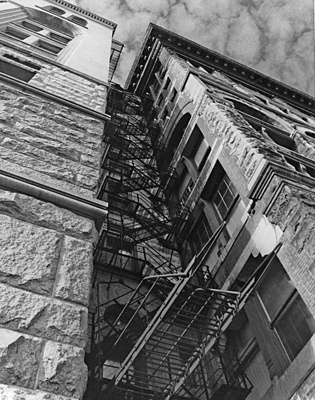All Nonfiction
- Bullying
- Books
- Academic
- Author Interviews
- Celebrity interviews
- College Articles
- College Essays
- Educator of the Year
- Heroes
- Interviews
- Memoir
- Personal Experience
- Sports
- Travel & Culture
All Opinions
- Bullying
- Current Events / Politics
- Discrimination
- Drugs / Alcohol / Smoking
- Entertainment / Celebrities
- Environment
- Love / Relationships
- Movies / Music / TV
- Pop Culture / Trends
- School / College
- Social Issues / Civics
- Spirituality / Religion
- Sports / Hobbies
All Hot Topics
- Bullying
- Community Service
- Environment
- Health
- Letters to the Editor
- Pride & Prejudice
- What Matters
- Back
Summer Guide
- Program Links
- Program Reviews
- Back
College Guide
- College Links
- College Reviews
- College Essays
- College Articles
- Back
Message in a Rice Bowl
Dear father,
Surely it is only a matter of time until the same fate that has befallen me comes to you. The days grow longer and longer with not a reason of why we are imprisoned in an internment camp. Hai, the president does this for a good and just reason but is the imprisonment called for? We are American citizens. We may be of Japanese ancestry, but we are not the deceitful people he believes us to be. You and mother, I know, are pure and honest Americans and so is ojiisan and obaasan. Is it fear, fear alone of a betrayal to our home country that he is most afraid of?
Me and Tadashi were doing what we normally do on a weekend: we read the newspaper in front of the newsstand on Saturday mornings. And then, we saw the signs, the signs on the telephone poles which read that we must be immediately removed from our homes and moved away from the West Coast. We were frightened and sickened by this: we were expected to abandon all that we knew and cared for just out of a man's growing fear of a Japanese attack. In a day, we both had packed all that we could in barely one suitcase: I had in mine a photograph of you and mother, a pendant given to me by Tadashi for our two year anniversary and a select amount of pots and pans.
Like dust scattered by a broom, we were swept out of our homes by force: the government made us and soon loaded us onto buses; They were cramped, full of other Japanese Americans like ourselves. We knew not where we were being transported to, only that our lives were falling apart with the act a single man had passed. Behind our bus were at least three others, packed full of men, women and children alike. As we made our way to lands unknown, we saw the faces of others just like us, headed to a place of confinement
Our journey was long: after driving on the bus for hours on end, we came to a place called an assembly center, where we were to be divided up like animals to the slaughter and to be shipped off once more to the various camps. “Korewa nandesu ka?” I heard children asking their mothers with scared voices while families and friends were attempting to say their last good-byes to each other with the fear that they would be separated. And me and Tadashi feared the same: I could hear him constantly whisper into my ear. “Ai shiteiru,” he would say over and over again. I could only pray that we would remain together, for the pain of separation would be too great to bear.
Wakarimasen. What was the meaning of this? A mass evacuation the result of the Pearl Harbor attack on Hawaii fueled the fires of this cruel means of confinement. Did the president not see how this was as bad as what the Nazis did in Germany to the Jewish and minorities of all lineages? We were outcast to the desolate wastelands of the inner United States, where we were to wait out the end of the war in the Pacific. But was this the way to calm the storm of constant fear?
I only pray for the well being of Tadashi and I. Only time will tell what will become of us.
Your daughter,
Kae

Similar Articles
JOIN THE DISCUSSION
This article has 2 comments.
